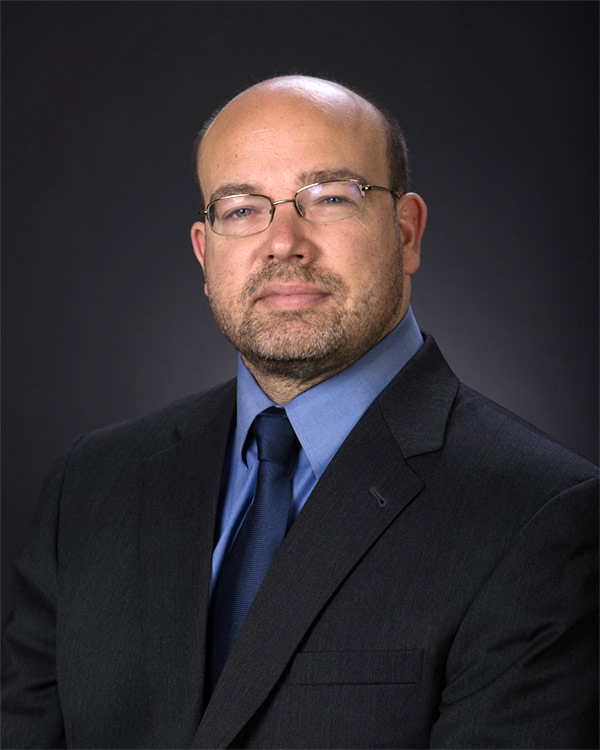
Kaitlyn Finchler
Staff writer
The Global South is often underrepresented or not seen as a player in the global game, said Nikolas K. Gvosdev, professor of National Security Affairs at the U.S. Naval War College. To truly engage in a partnered society, the Global North needs to take the Global South seriously.
Gvosdev, senior fellow for the U.S. Global Engagement Initiative at Carnegie Council for Ethics in International Affairs, will deliver his lecture at 10:45 a.m. today in the Amphitheater for Week Nine’s theme, “The Global South: Expanding the Scope of Geopolitical Understanding.” This is his second time speaking at Chautauqua; with Geoffrey C. Kemp, Gvosdev gave 2022’s Middle East Update.
“We really need to change our mental map regarding the Global South,” he said. “For too long, we’ve seen it as a part of the world that we engage in charitable activity (and) try to help it develop, but we don’t really believe this part of the world has a major impact on U.S. national and economic security.”
As the United States goes through 21st-century changes, Gvosdev — who also serves as director of National Security at the Foreign Research Policy Institute — said there’s 8 billion-plus people aspiring to a middle-class lifestyle. At the same time, these people are trying to avoid further damage to the environment in the regions referred to as the Global South.
There’s a “trilemma,” as he calls it, in regard to the energy, food and water crisis. The Global South is home to a lot of the raw material the United States needs for new technologies, which makes it integral to U.S. security and prosperity.
“In the 20th century, we could perhaps get away with that,” Gvosdev said. “In the 21st century, we’re not going to be able to do that. It’s the mental shift that is needed.”
The corresponding mental shift, he said, has to produce structural changes. Right now, U.S. foreign policy remains anchored in a horizontal axis East to West, not as much North and South.
“When we talk about trans-Atlantic relations, we think (of the) United States and Canada to Europe,” Gvosdev said. “We don’t think that the Caribbean, Eastern Africa, Latin America (and) Western Africa are also part of that Atlantic community.”
The way the world is integrated, he said, connects two “doorstep issues,” particularly true for resource-rich Africa.
“This may sound very cold-blooded and mercenary, but we have to think about the bottom line,” Gvosdev said. “These parts of the world are going to be intrinsic to the maintenance of the lifestyle that most Americans have become accustomed to.”
American industry can make real contributions to the Global South, he said. However, it needs to be done as a partnership. In the last 20 years, Gvosdev said Chinese companies have viewed the Global South as a profit, not a pity — while most Americans don’t think of Africa, Latin America or South Asia as places for mutually beneficial profits.
“The government needs to encourage, prime the pump, help with the export licenses (and) really forge ahead with some of these technological trade partnerships that can really bring these benefits in the future,” he said.
The second doorstep issue is climate geopolitics, which Gvosdev said is contributing to fundamental changes of where and how the U.S. engages with the world. Meanwhile, Russia — which isn’t seen as much of a player in the Global South — has made clear to their own companies the benefits of working with those countries.
“They encourage the development of their expert communities, speaking the local languages, functioning and understanding,” Gvosdev said. “Whereas in the U.S., it often seems people see this backwards.”
The Chinese government has more tools at its disposal to encourage companies doing business with the Global South, but they understand that they can’t sell those technologies back at the same market-rate as America.
“One of the drawbacks that the United States has had for so long after the Cold War, was we were essentially the only game in town,” Gvosdev said. “We didn’t have to sell ourselves (and) we didn’t have to compromise or bargain.”
The Global South he said, needs to be prioritized. Traditionally, interest groups for the region have been celebrity-led or backed by religious, charitable or human rights organizations. A guiding principle for engagement is understanding and making the case, he said, that foreign policy isn’t an abstract concept exclusive to Washington; it impacts daily life.
“The climate changes, geography changes, therefore the politics change,” Gvosdev said. “Countries that mattered to the United States 30 years ago, may not matter as much to the United States 30 years from now.”




